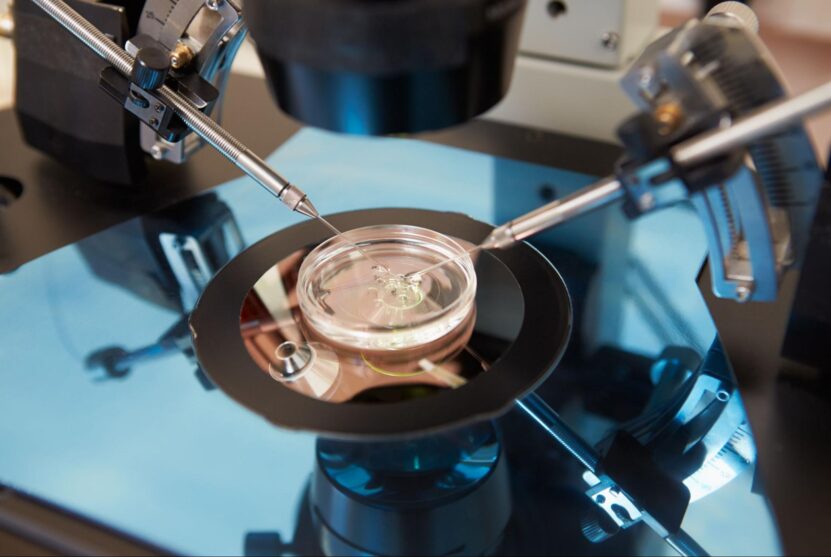May 15, 2025
How to Qualify for IVF: A Guide to In Vitro Fertilization

Infertility can be a challenging journey, but advancements in assisted reproductive technology have provided hope for many aspiring parents. One of the most effective infertility treatments available today is in vitro fertilization (IVF). If you are considering IVF treatment, you might be wondering whether you qualify for this fertility treatment and what the IVF process entails. In this guide, we’ll explore the essential IVF qualifications, the necessary medical evaluations, and what you can expect from the IVF cycle.
Understanding IVF Qualifications
Not everyone struggling with infertility is an immediate candidate for in vitro fertilization. A fertility specialist at a reputable fertility clinic will assess several factors to determine whether IVF is the best infertility treatment for you. Some of the primary IVF qualifications include:
- Age and Ovarian Reserve: IVF can help women of any age and any ovarian status. IVF does not improve egg quality, but it can help make the best use of eggs.
- Hormonal and Blood Tests: These tests assess ovarian reserve, hormone levels, and overall reproductive health.
- Fallopian Tube Health: IVF is often recommended for women with blocked or damaged fallopian tubes since the procedure bypasses natural conception barriers. However some severely damaged tube(s) may need to be removed prior to embryo transfer.
- Male Fertility Factors: IVF treatment is beneficial for couples dealing with male infertility issues, such as low sperm count or motility.
- Previous Fertility Treatments: If prior methods like intrauterine insemination (IUI) have failed, IVF may be the next step.
The IVF Process: Step-by-Step Guide
The IVF process involves multiple steps to enhance the chances of embryo implantation and a successful pregnancy.
1. Initial Consultation and Testing
Your fertility specialist will conduct a comprehensive medical history review and perform several tests to evaluate your reproductive health. These tests help to prepare your body for an IVF cycle.
2. Ovarian Stimulation and Egg Retrieval Procedure
During this stage, fertility medications in the form of shots and pills stimulate the ovaries to produce multiple mature eggs. Monitoring through blood tests and ultrasounds ensures that the eggs develop properly. Once the eggs are ready, the egg retrieval procedure is performed under mild sedation. This is a minimally invasive procedure where a specialist uses an ultrasound-guided needle to collect the mature eggs from the ovaries. The retrieved eggs are then immediately sent to the laboratory for fertilization.
Egg retrieval is a crucial step in the IVF process, as the number and quality of eggs collected directly impact the chances of a successful pregnancy. Patients may experience mild cramping or bloating after the procedure, but most can resume normal activities within a day or two.
3. Fertilization and Embryo Development
After the egg retrieval, the mature eggs are combined with sperm in a lab to create fertilized eggs. The fertilized eggs are monitored as they develop into embryos. Embryos are normally frozen and tested for chromosome abnormalities.
4. Embryo Transfer
Embryo transfer involves placing the healthiest embryo into the uterus. This painless procedure is carefully timed to maximize the chances of a successful pregnancy. In almost all cases, a frozen embryo transfer is performed later, following the freezing and thawing process.
Single embryo transfers are performed to maximize pregnancy rate and minimize the risk of multiple pregnancies. The process is guided by ultrasound, ensuring precise placement in the uterus for optimal implantation.
After the embryo transfer, patients enter the two-week wait period, during which the embryo hopefully implants into the uterine lining. This is a crucial stage, as successful implantation leads to the production of pregnancy hormones. During this time, patients are advised to rest, avoid strenuous activities, and follow their fertility specialist’s recommendations to support implantation.
5. Pregnancy Test and Follow-Up
About 9 days after the embryo implants, a pregnancy test is conducted to determine whether the IVF cycle was successful. If implantation was successful, the patient continues to receive care from their fertility clinic.
Additional Considerations for IVF Candidates
Using Donor Eggs or Frozen Embryos
For women with diminished ovarian reserve, donor eggs can improve the chances of a successful pregnancy. Similarly, some patients choose to use frozen embryos from a previous IVF cycle.
Lifestyle and Health Factors
Maintaining a healthy weight, avoiding smoking, and managing stress can contribute to the success of in vitro fertilization IVF treatments. COQ10 an over the counter anti-oxidant may be beneficial for egg quality.
Conclusion
Qualifying for IVF requires a thorough evaluation by a fertility specialist to determine the best approach for conception. Factors like age, ovarian reserve, hormone levels, and previous fertility treatments all play a role in whether IVF is the right option. The process itself involves several key steps, including ovarian stimulation, egg retrieval, fertilization, embryo transfer, and the crucial implantation phase. Each step is carefully monitored to maximize the chances of a successful pregnancy.
While IVF can be a complex and emotional journey, advances in reproductive medicine continue to improve success rates, giving hope to many individuals and couples struggling with infertility. If you’re considering IVF, consulting with a fertility clinic can help you understand your options and take the next steps toward growing your family.

